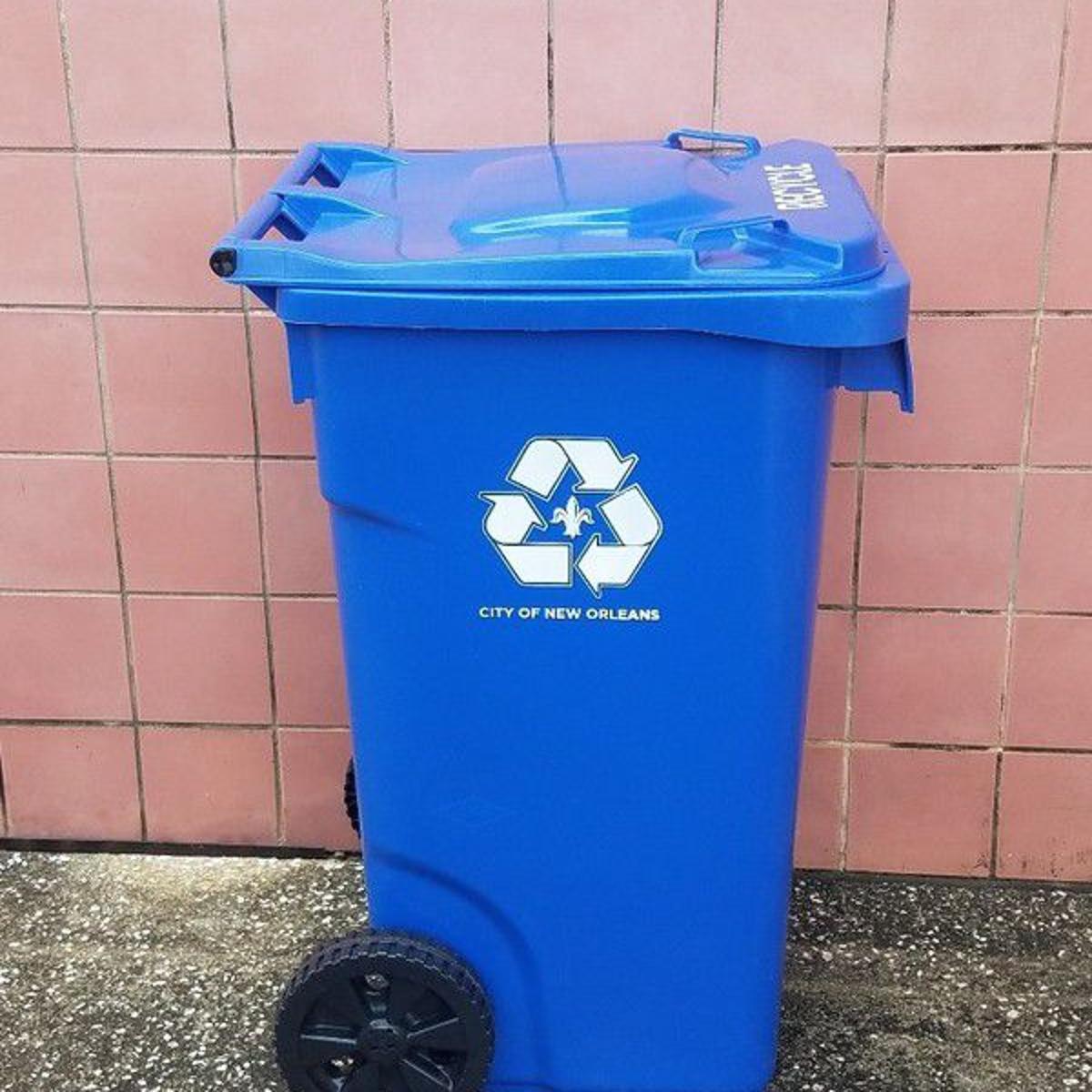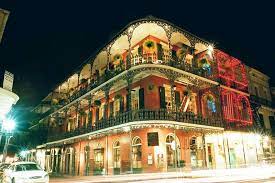New Orleans is a city known for its vibrancy and its soul. The cultural elements within New Orleans are second to none, and the individualism and self-expression that emerges through the visual arts, physical craftsmanship, and culinary perfection make this city a truly unique place to live. With all of the great things that humans do in this city, it can become easy to forget how intrinsically the lifestyle cultivated in New Orleans is tied to nature. Even the mere mental imagery of the phrase “New Orleans” probably invokes a picturesque streetcar line running past ancient trees thicker than a car or a jazz band staking their auditory claim to the universe in a park by the Mississippi River. Even with all of its beauty, the city faces a multitude of environmental problems. Rising sea levels, coastal erosion, overfishing, pollution, and wastefulness have all contributed to an ecological disaster primed to strike and which is now threatening all of the many great things New Orleans has to offer. Everyone is responsible for contributing to a healthier planet by living more sustainably and making informed consumer choices. In order to keep New Orleans healthy and help individuals live in a more environmentally friendly manner, we have contributed a list of organizations, practices, and initiatives that our readers can choose to partake in, in the hopes that we can all help in our own ways to preserve the longevity of the beauty within New Orleans.
Week 1 – Recycling

Recycling in New Orleans
Recycling is one of those sustainability buzzwords that everyone wants to participate in, but in practice can often leave kind-hearted individuals frustrated and feeling as though their actions were inadequate. Although the city proper of New Orleans lacks a comprehensive recycling program for plastic, plenty of organizations are willing to step up to the plate and lend a helping hand to reducing some of the city’s waste.
One such organization is Glass Half Full, a not-for-profit founded by Tulane students hoping to make a difference by introducing a glass recycling program to the city. The organization collects glass items such as bottles and jars and turns them into the sand, which can then be sold or used to prevent coastal erosion. Or, if you just want to help out with their mission, they are always looking for new volunteers and partners to expand their impact!
Tulane students create glass recycling program in New Orleans with great success
Another organization that has found an unconventional way of tackling the recycling issue in New Orleans is The Coalition to Restore Coastal Louisiana. One of the staples of life in The Big Easy is snacking on oysters – but because the state of Louisiana is responsible for producing half of the nation’s oysters, it is now becoming an overexploited resource. To help, the organization collects oyster shells from participating restaurants they have partnered with and returns the shells to Louisiana’s eroding coastlines. These shells help new Oysters latch on to a solid foothold so that they can grow in a healthy and sustainable way, repopulating their dwindling numbers and allowing New Orleans residents to feast on them!
Week 2 – Sustainable Living

Sustainable Living
Making the effort to live sustainably can be hard work. Those who commit to making more sustainable consumer choices oftentimes must go out of their way to do so, and businesses that want to be more sustainable need to weigh the costs and benefits of their decision. Luckily, many organizations in New Orleans provide the means to sustainable living without radically changing one’s lifestyle.
One organization that goes above and beyond in helping both individuals and companies operate in a more environmentally conscious way is The Green Project. This St. Roch-based business was founded to provide a way for businesses and individuals to recycle their paint. Since then, they have expanded their operations to include educational programming on weekends and art shows made from salvaged materials. Additionally, they even have set up areas to make accessible new and used building materials for New Orleans citizens – perfect for businesses on a budget or quarantine-induced DIY projects at home!
Salvations and The Green Project: Not your Momma’s recycling
Oftentimes, individuals who wish to make their businesses more sustainable have difficulty finding ways to do so without breaking their budget or sacrificing precious hours in the workday. One company that aims to fix this is Eglé Solutions, a local firm that provides consultations, products, and services to other businesses in New Orleans with the goal of making them more environmentally friendly. The services they provide operate neutrally in the background so that business owners can lead their typical lives without having to think twice about giving back to the planet.
Local company capitalizes on environmental remediation technology
Week 3 – Giving Back

Giving Back
Sustainability is a team effort – we all share the same planet, the same cities and the same neighborhoods, and it is important that we all strive to make each of our living places healthier and more sustainable together. Giving back to the New Orleans community through volunteer work is one of the best possible ways for someone to make the city greener. And many organizations do just that – from planting trees, to growing community gardens, to cleaning up the city’s parks, ordinary New Orleans citizens can contribute to making the Crescent City a greener place.
One way to give back to New Orleans is through community gardens, which provide nutrition and clean air to local areas while simultaneously uniting the people who live there through a safe and healthy medium. Community gardens give people something to do, bring unlikely faces closer together, and provide healthy meals and learning opportunities for youths. Their environmental impacts are massive, too – they provide locally sourced food devoid of unhealthy chemicals and energy-intensive shipping methods. Many different organizations run dozens of gardens all over New Orleans; all you have to do to contribute is find one close by and bring a green thumb!
With the Covid-19 pandemic hopefully on its way out, many New Orleans citizens are turning their attention (and hopes) towards next year’s Mardi Gras. One of the staples of the city-wide celebration is the plastic beads. People go crazy for them and they’re plenty of fun to wear and show off, but when the celebrations are over, they typically end up in landfills, the ocean, and other unpleasant areas for the planet’s health. In order to combat this, many organizations within the city of New Orleans offer opportunities for residents to clean up after themselves or others by recycling used beads.
Week 4 – Going Green From Home

Living sustainably takes a lot of work – from changing your diet to choosing where and what you shop for your goods, and even how you choose to get around. Sustainable living can be very time-consuming. Many individuals are turned off by an environmentally friendly lifestyle because they simply don’t have the time or the resources to do so. Especially now in the midst of a global pandemic, it is harder than ever to find ways to be sustainable and to do so all from home. Luckily, a few organizations and online resources are helping to point people in the right direction.
One charitable organization attempting to impact sustainability in New Orleans without altering peoples’ lifestyles is Green Light New Orleans. The organization gives out free low-energy lightbulbs to those that are willing to commit to helping the planet by lowering their energy demand. This simple idea makes only a marginal difference for each person, but it is incredibly effective on a larger scale. The more people who change their lightbulbs, the better off everyone is!
Green Light New Orleans is making social change one light bulb at a time
An at-home solution to lowering the amount of food waste produced in one’s home is composting. Composting is an efficient and easy way for an individual or a family to prevent their unused groceries and produce from ending up in a landfill somewhere. Plus, it doesn’t involve volunteering or leaving the house, so it is a health-conscious and socially distanced alternative to waste management on the part of the individual.
Quarantine composting, part 2: Enriching local soil and community
Week 5 – Innovation

Scientists say the world is now at a “tipping point” due to climate change, where we must collectively decide to lead more sustainable lives or else suffer the consequences of our wastefulness. In order to fix the world, we need to come up with solutions that think outside the box and change the ways we go about the world. In short, we need to innovate – and luckily for New Orleans residents, there are plenty of think tanks, incubators, accelerator programs, and funds to get someone with an idea on their feet and to help them hit the ground running.
People who want to live sustainably while improving the lives of others sometimes run into issues of reach and financing. Even those with the best intentions may face the realities of life and the limitations that resources may impose on a dream. Fund 17 is an organization that helps provide tools, resources, and funding to people who want to make their dream a reality and who wish to make a positive impact on their community – whether that vision is environmentally, socially, or economically focused.
Fund 17 empowers to turn hustles into sustainable livelihoods
Sometimes, people with an idea just need an extra push to help them get started. And more often than not, those who have a game-changing idea or invention may withhold developing it because they are afraid it may go too far against the grain or be incompatible with their life or the lives of those within their city. Many organizations hope to change this, and the Idea Village is one such program that helps entrepreneurs and innovators find the resources they need to launch their projects while simultaneously integrating their ideas into the New Orleans lifestyle.
How entrepreneurship has integrated into New Orleans culture
This piece was edited by Jiayi Xu as part of Professor Kelley Crawford’s Digital Civic Engagement course at Tulane University.
 NOLAbeings Multimedia artist Claire Bangser created NOLAbeings as a portrait-based story project that marries...
NOLAbeings Multimedia artist Claire Bangser created NOLAbeings as a portrait-based story project that marries...  Voodoo in New Orleans: Reviving history: New Orleans fortune telling This article takes a deep dive into the history of Voodoo in New Orleans, its hybridization with Catholicism, and its present-day place in the city's culture. The author visits fortune-tellers in the French Quarter, using their guidance as a tool for introspection rather than a deterministic predictor of the future. Through her experiences in New Orleans, the author feels a mystical connection to both the past and the future.
Voodoo in New Orleans: Reviving history: New Orleans fortune telling This article takes a deep dive into the history of Voodoo in New Orleans, its hybridization with Catholicism, and its present-day place in the city's culture. The author visits fortune-tellers in the French Quarter, using their guidance as a tool for introspection rather than a deterministic predictor of the future. Through her experiences in New Orleans, the author feels a mystical connection to both the past and the future. 
[…] Source […]